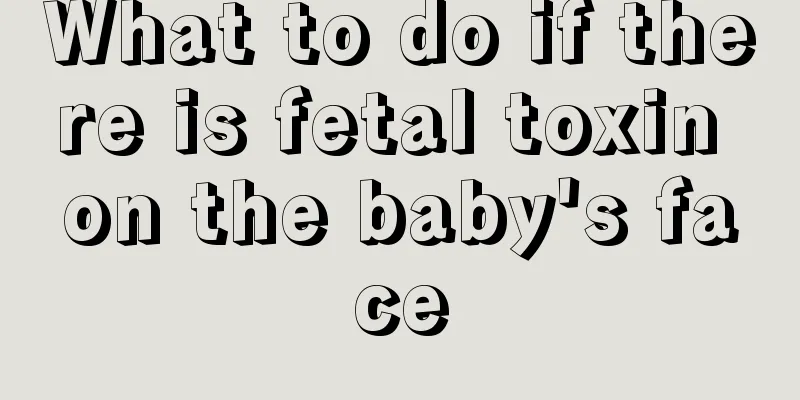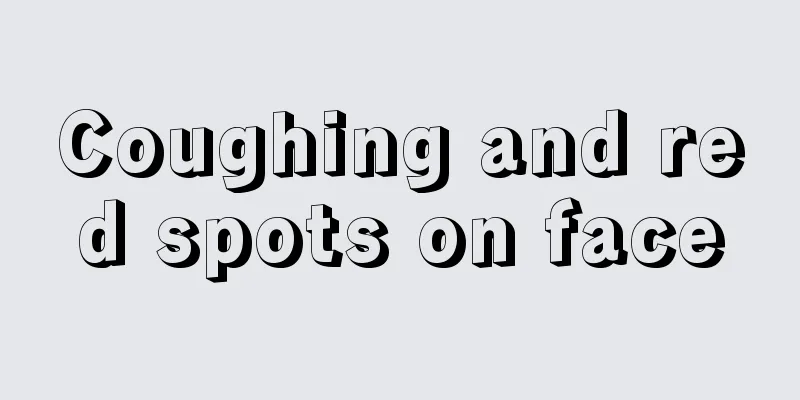What to do if there is fetal toxin on the baby's face

|
The so-called fetal toxins is a term in traditional Chinese medicine, which actually refers to the heat toxins in the body of a pregnant woman. Many women will develop acne on their faces during pregnancy. Since the fetus absorbs nutrients through the mother, the heat toxins in the pregnant woman's body will also be absorbed by the fetus. Soon after the child is born, a lot of eczema will appear on the face or body, which is what people call fetal toxins. So what should you do if your baby has fetal toxins on his face? Let’s take a look. Fetal toxicity mainly occurs when the baby is not yet born due to the influence of the mother's male hormones. If the mother produces too much male hormone during pregnancy and it affects the fetus through the blood circulation of the placenta, it will cause the fetus to have a temporary hypersecretion of the sebaceous glands. Excessive sebum will also block the opening of the hair follicles, causing keratinization of the hair follicle epithelium and embolism of the hair follicle ducts. Coupled with the effects of fatty acids and bacteria in the hair follicles, the baby will have skin inflammation like that of teenagers, so this is neonatal acne. Neonatal acne mostly occurs in children soon after birth or under 2 years old. The sites of occurrence are similar to those of adolescents, including the forehead, chin, cheeks, etc. The skin lesions also take various forms such as red papules, whiteheads and blackheads, small nodules and pustules. A few children may also develop nodules and cysts similar to those of adolescent acne. Generally, within 1 to 2 months after birth, when the level of male hormones in the baby's body decreases, most neonatal acne does not require medication. If a child's face is inflamed and there are many red papules, pustules and nodules, secondary infection may occur if not treated in time. Timely anti-inflammatory, anti-infection and scar prevention measures should be taken. Parents must not squeeze or pick with needles to prevent the spread of infection and the formation of scars, which will affect the child's appearance in the future. After reading the above content, I believe everyone has a clearer understanding of the formation of fetal toxins on the baby's face. In fact, mothers don’t have to worry too much. Generally, the fetal toxins in the baby’s body will fade away on their own 1-2 months after the baby is born. If the baby's eczema is severe and skin damage has occurred, it is recommended to use medication under the guidance of a doctor. |
<<: How to treat fetal toxicity in babies
>>: How to treat children's dampness
Recommend
How to treat cerebral palsy in children?
Some children suffer from cerebral palsy, which s...
What should I do if my child accidentally drinks liquor?
People drink many kinds of alcohol in their lives...
What are the precautions for babies to bask in the sun?
Regular sunbathing has certain benefits for the b...
The causes and solutions for blackening of baby teeth
Newborn babies look pink and tender, unlike us wh...
What are the dangers of children growing canine teeth?
The teeth growing stage is a relatively important...
What to do if baby has red spots on his buttocks
Now that people's living conditions have impr...
What are the nursing measures for neonatal diarrhea?
Newborns have very poor resistance, so special at...
Is it good for babies to eat protein powder? Is it good for children to drink protein powder?
Protein is the most important nutrient and it is ...
Treatment for baby cough
Nowadays, many babies cough and retch, which is r...
The jaundice will go away in a few days.
Generally speaking, the physiological jaundice of...
What is mastoiditis?
Mastoiditis is a common disease among children an...
What causes rubella in children?
Sometimes when a child has health problems, paren...
Height of a one and a half year old child
Usually parents are very concerned about their ba...
The reason why babies have yellow loose stools
In daily life, everyone hopes that their children...
Why do children grind their teeth and talk in their sleep?
Many babies grind their teeth or talk in their sl...









